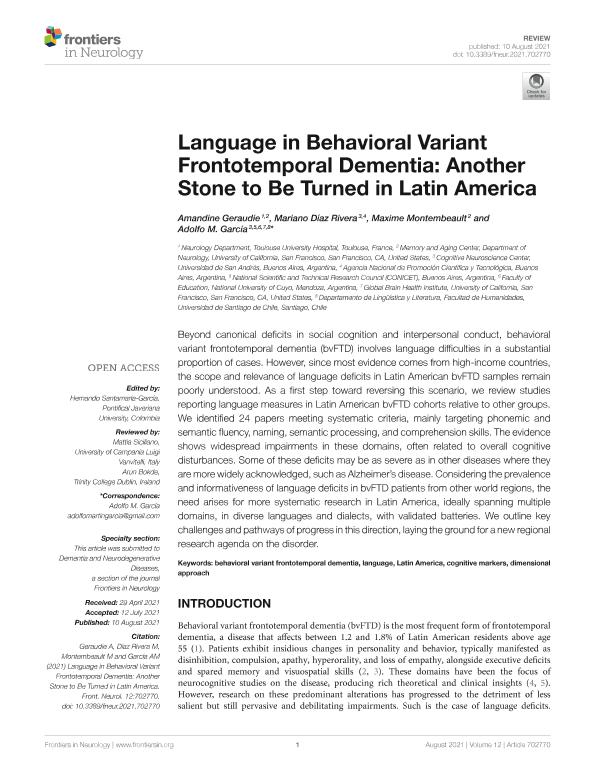Artículo
Language in behavioral variant frontotemporal dementia: Another stone to be turned in Latin America
Fecha de publicación:
10/08/2021
Editorial:
Frontiers Media
Revista:
Frontiers in neurology
ISSN:
1664-2295
e-ISSN:
1664-2295
Idioma:
Inglés
Tipo de recurso:
Artículo publicado
Clasificación temática:
Resumen
Beyond canonical deficits in social cognition and interpersonal conduct, behavioral variant frontotemporal dementia (bvFTD) involves language difficulties in a substantial proportion of cases. However, since most evidence comes from high-income countries, the scope and relevance of language deficits in Latin American bvFTD samples remain poorly understood. As a first step toward reversing this scenario, we review studies reporting language measures in Latin American bvFTD cohorts relative to other groups. We identified 24 papers meeting systematic criteria, mainly targeting phonemic and semantic fluency, naming, semantic processing, and comprehension skills. The evidence shows widespread impairments in these domains, often related to overall cognitive disturbances. Some of these deficits may be as severe as in other diseases where they are more widely acknowledged, such as Alzheimer's disease. Considering the prevalence and informativeness of language deficits in bvFTD patients from other world regions, the need arises for more systematic research in Latin America, ideally spanning multiple domains, in diverse languages and dialects, with validated batteries. We outline key challenges and pathways of progress in this direction, laying the ground for a new regional research agenda on the disorder.
Archivos asociados
Licencia
Identificadores
Colecciones
Articulos(SEDE CENTRAL)
Articulos de SEDE CENTRAL
Articulos de SEDE CENTRAL
Citación
Guillard, Amandine Marie; Díaz Rivera, Mariano; Montembeault, Maxime; García, Adolfo Martín; Language in behavioral variant frontotemporal dementia: Another stone to be turned in Latin America; Frontiers Media; Frontiers in neurology; 12; 702770; 10-8-2021; 1-13
Compartir
Altmétricas




